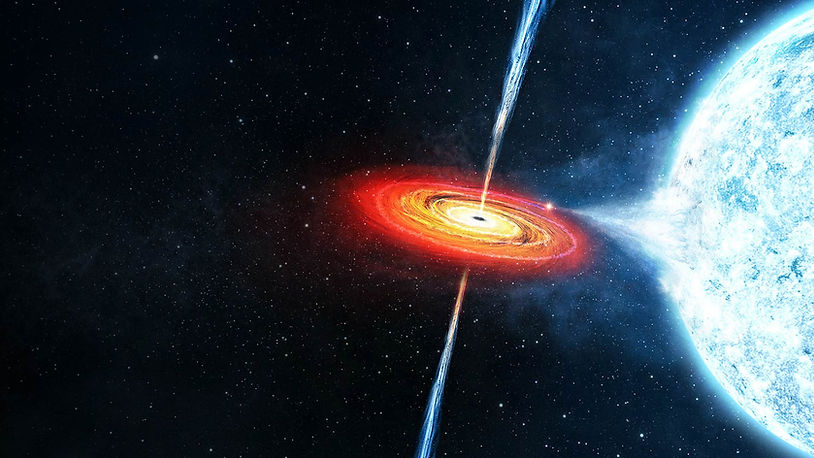By: Andrew Lu
Most of you know what a black hole is. You might also know that we have discovered many black holes, including Sagittarius A, located at the center of the Milky Way. Black holes bend and absorb light. They also engulf most nearby stars.
Despite this general knowledge of black holes, many of you might not have a clue as to what a magnetar is – don’t worry, I’ll explain it. A magnetar is a more powerful version of a neutron star. It is formed when a star (at least eight times the mass of the Sun) collapses and creates a beautiful supernova. Most of that star is blown off into space, but part of it remains. Its extremely dense core remains, forming a neutron star. Neutron stars spin very fast, at a speed of multiple revolutions per second! As the name mentions, neutron stars are made up of neutrons. Most neutron stars are only 10 km in diameter but have a solar mass 1.4 times that of the sun.
Some neutron stars are so magnetic that they release electromagnetic radiation from their poles, turning them into pulsars. When one of the poles faces Earth, we can study them with a telescope.
Let’s take another step forward. When pulsars develop an intensely strong magnetic field, they become a magnetar. A magnetar has such a strong magnetic pull that it is also known as the strongest magnet in the known universe. Magnetars spin around ten times each second, which is extremely fast by cosmic standards. All magnetars are 100 times as strong as a neutron star.
Although it will never happen, as magnetar in our solar system – or even near it – could cause drastic problems for mankind.
Now we wonder if magnetars could beat a black hole. Would the magnetar swallow the black hole? Or would the opposite happen? Will a gigantic explosion occur? Or will nothing affect us?
First of all, no explosions will happen. It would be a “merger,” which means they could combine together. No explosion – and no “big bangs”.
Even things as powerful as a magnetar would never win a battle against a black hole – dark matter controls it all. The black hole would slowly and steadily rip chunks of the magnetar off over a span of millions of years. Then, there are many other situations regarding the size (and trajectory) of the magnetar and black hole. Humongous black holes, like Sagittarius A, could swallow a magnetar whole. But then, small black holes might only take a part or chunks of the magnetar, dismantling it over time.
If they collided, it could send large amounts of gravitational waves into space. Also, it could disturb time itself. If a black hole consumes a magnetar, it would just get bigger – and unfortunately, last longer. Black holes get bigger and bigger as they pull more stars to their doom. Eventually, Sagittarius A could bring in the entire Milky Way itself, and thankfully, we’d be gone by then.











